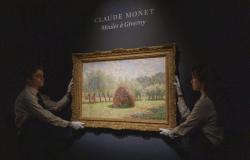
We found out about the meeting of the City Council this morning when we went to a dairy farm to buy some ricotta and mature pecorino cheese, and the cheesemaker informed us of the Civic Council, otherwise we weren’t aware and we felt embarrassed because the cheesemaker did and we didn’t, as he Done? It would be appropriate, it is a piece of advice, for the next few times, now in the social era, to publish the notice on the institutional Facebook page of the Municipality.
There are eight points on the agenda, including a question from the councilors of Fratelli d’Italia regarding the “Christmas demonstrations”, some communications from the mayor, two budget ratifications and the approval of the regulation of the soon-to-open Municipal Library on the occasion of the Italian Book Capital.
A City Council begins with five absent (Sic!) out of 16 councilors (Sic!) plus the Mayor.
Filippo Lazzaro takes the floor in the preliminaries, criticizing the absences as “they debase the function of the City Councilor”. Lazzaro, while applauding the recognition of the Italian Capital of Books, warns the Councilor for Culture Maria Fedele, “talking about dark years in the decades as Taurianova is something else (…) and that period has been cancelled. We had ten years of mayor Biasi and that black page was erased by a flourishing moment.” “Taurianova must not wake up, but that you will press on the accelerator to fly higher”, the wish of the Melonian councilor. “In the last thirty years I don’t remember dark moments” and therefore of “representing ourselves for what we are”. Addressing the president of the City Council, “We are sticking to what you bring to the chamber and to the last conference of group leaders, but if you, who represent us, propose to our councilor a possible written response, and you cannot propose to transgress the regulation approved by you”.
Scarfò responds to Lazzaro, “I correct the incorrect statements as that day he had communicated to councilor Prestileo that the question had to be brought to the City Council and that he could have a written response between the conference and the Council, and Prestileo could accept or opt to discuss in the classroom”. He begins the controversy with Lazzaro who reacts strongly against the accusation of not having told the truth. A fierce argument begins and everyone remains in his position. Only they know the truth!
Prestileo intervenes by stating that everything said in the City Council is of public interest, “if we had to have intellectual honesty, that day you jumped from the chair…”, it is not allowed to finish until Scarfò… begins the second spat and continues with mutual accusations of alleged truths, each with their own version.
The dem councilor takes the floor and confirms the position of the version of the two Melonians, he also focuses on the Italian Capital of Books and on the commitment of some sums, as there are invoices and asks “which estimates have been acquired” and because 5 thousand euros are committed for the promotion of the book. Marafioti also warns councilor Fedele about the Genoese statement of the “dark decades”. Marafioti focuses again on the amounts involved in the loans, including 50 thousand euros to a company which has its registered office in Rome “and which has not found a social page given that they consider themselves experts”. Marafioti warns the administration because Taurianova professionals were not considered in the sums committed. Then he points out the issue of the “Cinema-Theatre”, inherent to his completion, and that “in turn, money and proclamations are involved, and it is always about culture”, the reference is always to the councilor Fedele.
Marafioti also asks for clarification on the sports hall, “it seems that this work will never see the light”, given that the completion date of the works is always postponed.
It’s Mayor Biasi’s turn who “would have preferred it to start in another way”, he immediately replies to Marafioti “which always takes us downwards. And he wonders what the strategy is and doesn’t give himself an image of himself by saying bullshit.”
Biasi, referring to the “dark decades”, admits and states that it was the reason that made us win together with the fact that we don’t read. And “that there is a wrong and distorted narrative about Calabria”, noting on the fact of transport, from the book we actually arrived at the Strait Bridge.
The mayor also talks about the video broadcast in Genoa as it was an exciting moment with thunderous applause and which Biasi admits to being emotional. And that our community in Genoa has made a fundamental and important contribution also to the welcome it has given.
Biasi states, “We have to team up right now because we have a once-in-a-lifetime opportunity.” Biasi also communicates a message from the mayor of Genoa, he says it too, “you must disprove the idea people have of Calabria”. Biasi also talks about the book that was given to him, a prestigious volume that will be kept in the library, “it was a beautiful and great emotion”, he also talks about the 500 thousand euros, “they are not enough for what will have to be achieved (…) and that you have to go in a hurry.”
“The expectations on us are high and if we trip each other up it’s not good, we have to be good at joining forces because it’s a once-in-a-lifetime opportunity and we shouldn’t throw mud at each other. The dialectic is right, but when there is an opportunity for the city we should all be on the same side.” Biasi opens a dialogue and collaboration with the minority.
Biasi on the Cinema-Theatre, “we inherited a project without everything and that we were losing money”, and that “the increase in construction costs makes it difficult for companies to complete the work and make ends meet”, this justifies the delay in completing the work. Then he talks about how it will be used after the theater, but which still has to be created. In fact “there are variations to be made”, says Biasi, declaring (again) that “we are towards the end (…) and we still need more money”. Biasi ventures another final date for the end of the works, “we hope for the end of September”.
As far as the first phase is concerned, the first phase is finished on the sports hall, with the painting against rust and another variant has been made. And that now they will put up the tarpaulin, and that they had to use money intended for other works. In fact, another contract should be made to make the flooring after installing the tarpaulin. The times depend on the Metropolitan City, says Biasi, we can only urge that the building can be used. “The time is almost at the end that it would be ready, and that the procurement will be quick.”
As regards the sports field, “we participated in a ‘Sport and Suburbs’ tender, but the money ran out” and since until January last year it was not possible to take out mortgages even with the Sports Credit. And Biasi communicates that they are taking steps to access the Sports Credit and that soon there will be a regional tender in which the Municipality will participate to go and create a structure that can be approved for the “Serie C” such as the San Martino sports field because in the old Matteotti, “at most we can do the first category”.
NOTE (Ed. The reference is to a “Genoese-style” video that has been doing the rounds on WhatsApp in the last two days. Whereas the Nemean Lion, Lernaean Hydra and Cerberus were killed by Hercules. Perseus killed Medusa who then managed to defeat the Kraken with her petrifying head, just as Theseus killed the Minotaur. In Taurianova’s “dark phase that lasted decades” there is no trace of such mythological monsters, and it is not clear what “rebirth” (?) the city should have, given that it respected democracy and popular will even with the current mayor? The last tragic events date back to over thirty years ago and in this period of time, there was a “spring” in 1993 until 1997 which in fact there was another “spring” with a young lawyer who for almost 11 years he administered the city and is the current mayor of Taurianova Roy Biasi: for a decade and a half. The remaining decade and a half, there were over five and a half years of prefectural commission, two Romeo mayors (four years and two dissolutions for mafia with an ancient, anachronistic law that is doing damage to democracy, as it did in Taurianova, but the period it was four years and not even a decade), and finally four years of Fabio Scionti. It was therefore necessary to inform the citizens and ensure that the memory that should not be forgotten can knock again at the door. To talk about Taurianova, it is necessary to know the history of Taurianova, above all as a “Cultural” duty and conscience. Without prejudice to the fact that we wish the Italian Book Capital great and exciting success. GiLar).
After the preliminaries the City Council to debate the points on the Agenda and we begin with the questioning and councilor Prestileo (FdI) takes the floor and reads the text relating to the Christmas events and on some additional expenses as the initial amount of 30 thousand euros were found to be insufficient and on an alleged lunch offered by councilor Grimaldi with public money in a well-known restaurant in the city and which cannot be included in entertainment expenses.
Councilor Grimaldi replies, “I would like to point out that the dinner is to be considered as compensation for the services offered for the events” and “not to be counted as entertainment expenses”, citing the example of artists’ reception expenses. In fact, Councilor Grimaldi declares that there was an error in the expense description and reporting offices, defined as “Christmas dinner” which is nothing more than a series of services for Christmas events.
And that all the businesses in the area were given the opportunity to work, listing the commercial activities that were used. In other cases the Administration sponsored the events.
Prestileo responds by saying that he “admits that a mistake was made, but covers are mentioned and not a payment for services, as we are talking about numbers of covers”. There is no doubt about the legality of the acts, on the questions that “when planning an activity no other withdrawals must be added”. Prestileo states that “there is something wrong, and an invoice arrives for 62 seats, I expect to see a table with 62 people, and that the questions were different”.
He acknowledges the error but is not satisfied.
The mayor communicates to the City Council some changes in the budget, and that there have been increases in collections and that the cash allocations have changed.
Biasi also states that to reduce the costs of waste taxes, it is necessary to change the management of waste collection, perhaps putting a composting machine in every point of the city, saving with the costs of door-to-door collection.
Councilor Marafioti takes the floor on the Tari, stating that there has not been a reduction in taxes for years, “seeing as the Tari did not depend on the collapse, is it possible that this Municipality does not find a diversion to reduce the tax?”, Marafioti also criticizes the collection solution feared by the mayor and which the credit goes to the citizens who know how to separate waste, except those who we have defined as “Lordazzi” who create environmental inconvenience and pollution. Marafioti also asks for clarification on the person in charge of this waste collection service.
The City Council closes with the resolution of the regulation of the Municipal Library which will be open on the occasion of the Italian Capital of the Book and with the regulation on sponsorships, the latter as Biasi states, “to take advantage of the year of the Italian Capital of the Book and on companies’ interest in the events and therefore external help from third parties such as a sponsorship contract”.
Until next time…
(GiLar)




